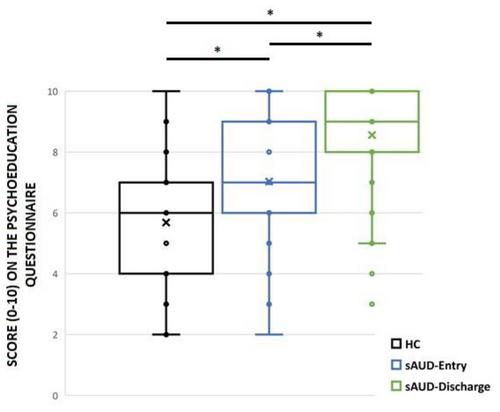Psychoeducation constitutes a routine therapeutic practice in most treatment settings for severe alcohol use disorder (sAUD). This technique is considered an efficient way to help patients to learn more about their disease and achieve therapeutic objectives. However, this approach capitalizes on three untested assumptions: namely, that (1) patients with sAUD possess insufficient knowledge about sAUD at treatment entry; (2) patients with sAUD have the cognitive resources to learn new information and benefit from psychoeducation; and (3) psychoeducation positively impacts clinical outcomes.
We tested these assumptions in two experimental studies. In the first experiment in 66 recently detoxified patients with sAUD and 102 matched healthy controls, we measured baseline knowledge on sAUD through self-reported questionnaires, determined whether an up-to-date psychoeducation program can improve this knowledge, explored the role of cognitive abilities in such learning, and established the impact of psychoeducation on relapse rates. In a second experiment in 23 patients and 17 healthy controls, we examined whether the increased knowledge following psychoeducation is alcohol specific, and whether the motivation to change influences the relation between psychoeducation and clinical outcomes.
At treatment entry, patients with sAUD presented with more sAUD-related knowledge than healthy controls, and were able to increase this knowledge following psychoeducation, independently of their cognitive status. However, psychoeducation did not impact either the motivation to change or relapse rates.
Psychoeducation can increase patients' knowledge about sAUD, but it does not increase the likelihood of abstinence or controlled low consumption after discharge. Thus, clinicians should question whether psychoeducation should occupy a central position in the therapeutic programs and reconsider what can be expected from psychoeducation in terms of achieving therapeutic objectives.


